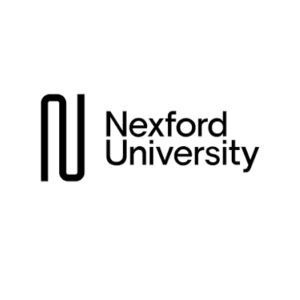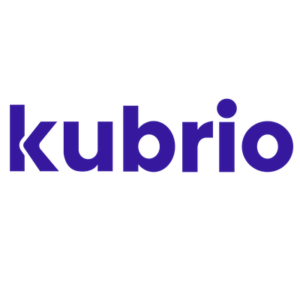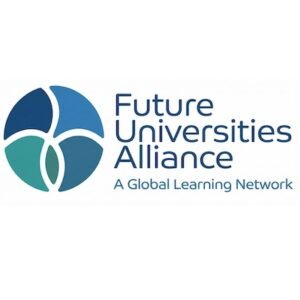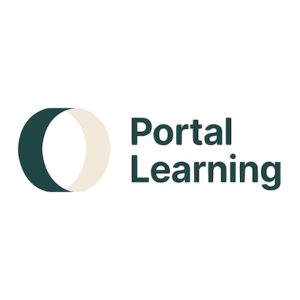Universidad 2025 #Research Article

UNIVERSIDAD 2025
SOUTHERN NEW HAMPSHIRE UNIVERSITY
By Rachael Sears
Vice President of Global Initiatives & Executive Director of the Global Education Movement (GEM)
Transforming Lives Through Innovative Global Education
Southern New Hampshire University (SNHU), a nonprofit institution, is at the forefront of a transformative movement in higher education. With more than 200,000 online learners and approximately 5,000 on-campus students, SNHU has redefined the traditional boundaries of academia, prioritizing accessibility and equity. SNHU offers online and in-person pathways to a degree in the United States across the globe including Latin America, Asia, the Middle East, and Africa.
Harnessing Technology for Scalable Solutions
SNHU’s commitment to using technology as a force multiplier is evident in its expansive online learning platform. With more than 200,000 students enrolled in online programs, SNHU operates one of the largest and most sophisticated online education systems in the world.
Central to SNHU’s success is its focus on personalizing the learning experience and support for every student. SNHU ensures personal connections and support for their learners while using advanced data analytics and artificial intelligence tools which help the university to tailor the learning experience to individual students’ needs. For example, adaptive learning platforms provide customized feedback and recommend resources based on each student’s progress, strengths, and challenges. This approach not only improves academic outcomes but also fosters a deeper connection between students and their coursework.
Additionally, SNHU has invested heavily in creating a user-friendly online learning environment. Comprehensive student dashboards, seamless navigation, and integrated support systems ensure that learners can focus on their studies without being hindered by technical barriers. As noted by the Online Learning Consortium, SNHU’s emphasis on user experience has set a new standard for digital education platforms. Among SNHU’s accolades is being named most innovative university in the Northeast by U.S. News and World Report for several years running, including in 2024.

Competency-Based Education: A Paradigm Shift
One of SNHU’s most transformative contributions to higher education is its emphasis on asynchronous and synchronous academic programs including competency-based education (CBE). Unlike traditional models that rely on seat time and fixed schedules, CBE enables students to progress by mastering specific skills and knowledge areas at their own pace. SNHU’s pioneering online CBE program, launched in 2013, exemplifies this approach. Designed primarily for working adults and non-traditional learners, the program allows students to demonstrate mastery through real-world projects rather than standardized exams or traditional assignments.
This model offers unparalleled flexibility, making higher education accessible to individuals juggling professional, familial, or other obligations. For instance, students can leverage knowledge gained from prior work experience to accelerate their progress. This not only reduces time-to-degree completion but also significantly lowers costs, making higher education more attainable for those who might otherwise be excluded.
CBE has also been recognized as a critical innovation for addressing the skills gap in the labor market. By aligning curricula with industry needs, SNHU ensures that graduates are prepared to meet the demands of modern employers. A 2020 American Institutes for Research report highlighted SNHU’s CBE programs as benchmarks for integrating career-relevant skills into higher education.

Leveraging Innovation and Technology to Expand the Boundaries of Collaboration and Access
Higher education has traditionally catered to a narrow demographic, often excluding nontraditional students, underserved populations, and those in crisis situations. SNHU’s leadership team recognized this systemic gap and embraced a mission to dismantle the barriers that prevent millions from accessing quality education. SNHU’s approach to technology and accreditation creates unprecedented collaboration and access.
Among SNHU’s groundbreaking initiatives, the Global Education Movement (GEM) stands out as a beacon of innovation and impact. This program provides displaced and refugee groups historically excluded from higher education with accredited degrees through a flexible, hybrid model. The program reflects a collective vision of leadership that prioritizes cultural relevance, localized support, and long-term scalability, ensuring that education is accessible to even the most marginalized communities.
The university’s broader efforts focus on revolutionizing how education is designed, delivered, and experienced. By embracing technology, competency-based learning, and forward-thinking student support systems, SNHU has set itself apart as a trailblazer in providing equitable and effective education for a wide range of learners.
Addressing the Needs of Nontraditional Learners
Nontraditional learners, who may be working adults, parents, or individuals in remote areas, often require the flexibility that traditional universities need to provide. SNHU has developed a number of academic programs including competency-based education (CBE), which allows students to progress by demonstrating mastery of skills rather than adhering to rigid schedules.
The CBE model has proven particularly effective for learners balancing education with other life demands. According to a 2020 study by Gallagher, CBE significantly reduces time-to-degree completion while improving retention rates. By leveraging technology and student-centered design, SNHU has created an environment where students can learn on their terms, breaking down one of the most significant barriers to higher education.
Bridging the Gap for Refugees
While nontraditional learners face challenges, refugees encounter even more significant obstacles, including legal restrictions, financial instability, and a lack of infrastructure. Only 6% of refugees worldwide have access to tertiary education, compared to 40% of the general population (UNHCR, 2023).
SNHU’s standout initiative, Global Education Movement (GEM), addresses these disparities by offering accredited degrees through a hybrid learning model that combines online courses with localized support systems. In camps like Kakuma in Kenya and Kiziba in Rwanda, GEM has created physical learning hubs equipped with internet access, study materials, and mentorship opportunities. These hubs provide educational resources and safe spaces for personal growth and community building.

The Foundation of GEM: A Vision for Equity
The Global Education Movement, launched in 2017, embodies SNHU’s vision for equitable education. Recognizing the inadequacies of traditional models in addressing the needs of refugee and displaced populations, GEM was designed to deliver a holistic, scalable, and culturally responsive approach to higher education.
Building a Sustainable Model
At the heart of GEM’s success is a commitment to sustainability. By partnering with local organizations who have deep roots in their communities, GEM ensures that its programs are effective, culturally relevant, and contextually appropriate. These partnerships allow GEM to tailor its offerings to the specific needs of each community, whether addressing language barriers in Lebanon or providing trauma-informed support in South Africa.
Research by Rogers (2020) highlights the importance of such community-driven approaches, noting that initiatives built on local expertise are more likely to achieve long-term success. GEM exemplifies this principle by integrating local mentors, career coaches, and peer networks into its educational framework.
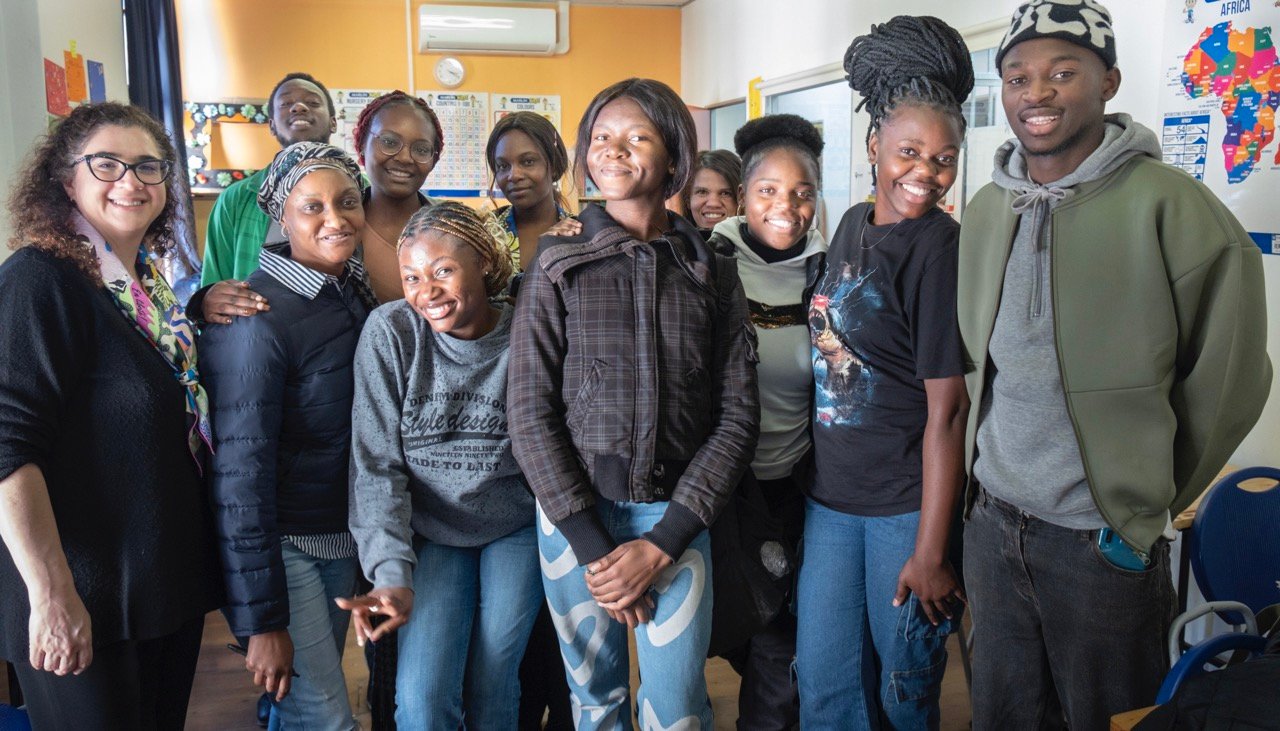
Innovative Education Models in Action
One of GEM’s most transformative contributions is its hybrid education model, which blends online learning with local, face-to-face support. This approach not only enhances accessibility but also ensures that students receive the interpersonal guidance they need to succeed.
Creating Inclusive Learning Environments
GEM’s learning hubs serve as both educational spaces and community centers. In regions where refugees often experience trauma and social isolation, these hubs provide safe and supportive environments. Workshops, academic support, employment support, counseling services, and peer-led activities help students build resilience and develop a sense of belonging.
According to Brunzell et al. (2016), safe and supportive learning environments are critical for students who have experienced adversity. GEM’s hubs embody this philosophy, offering both academic resources and wrap-around support.
Balancing Flexibility and Engagement
While online education offers unmatched flexibility, it sometimes needs more personal connection for sustained engagement. GEM addresses this challenge by integrating in-person mentorship and group learning activities into its curriculum. This hybrid approach ensures that students acquire academic knowledge and develop critical interpersonal and problem-solving skills.
Data supports the effectiveness of hybrid education. A 2021 World Bank study found that blended learning models improve academic outcomes by up to 30% compared to purely online or in-person programs. GEM’s success aligns with these findings, demonstrating the power of thoughtful design in overcoming educational barriers.
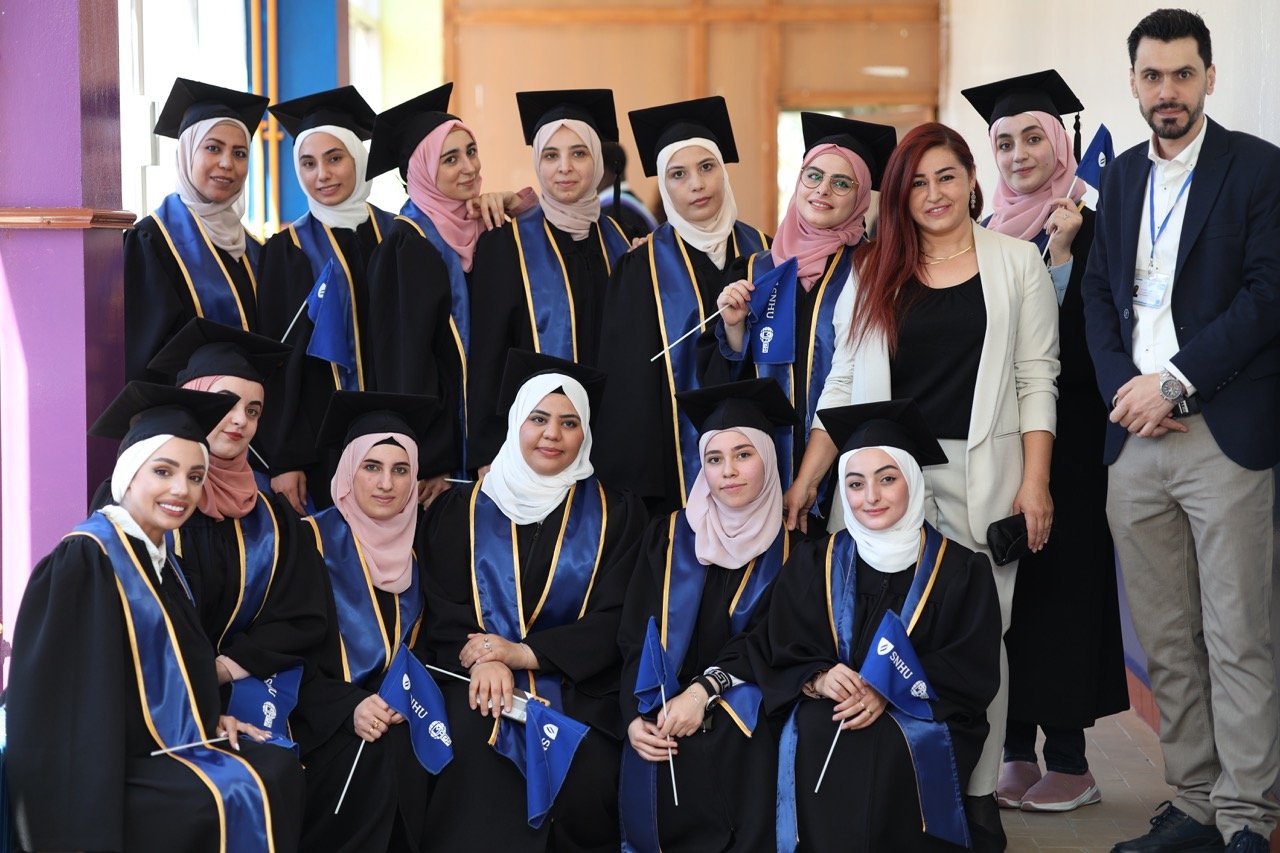
Leadership’s Role in Driving Change
SNHU’s leadership is pivotal in advancing the university’s mission to “transform lives at scale.” The team’s commitment to equity and innovation is evident in every aspect of GEM design and implementation.
Prioritizing Equity
Leadership at SNHU has consistently emphasized the importance of equity in higher education. This focus drives decisions around affordability, accessibility, and program design, ensuring that even the most underserved populations can participate in and benefit from educational opportunities. GEM’s tuition-free model for refugees underscores the leadership’s commitment to expanding access to learning for all.
Empowering Local Communities
SNHU’s leaders recognize that education is most impactful when it is rooted in the communities it serves. By partnering with local organizations, GEM ensures its programs align with cultural norms, labor market demands, and students’ lived experiences. This decentralized approach reflects a broader shift in development thinking, prioritizing community ownership over top-down interventions.

The Broader Impact of GEM
GEM’s influence extends far beyond individual students, creating ripple effects that transform entire communities. Transforming an individual transforms a family; the family transforms their community. Education catalyzes economic growth, social cohesion, and improved public health outcomes, making programs like GEM critical to global development.
GEM graduates often become leaders within their communities, using their education to drive local development initiatives. For example, in Kenya’s Kakuma camp, a GEM graduate founded a nonprofit that provides vocational training to women, empowering them to achieve financial independence.
Such stories highlight the multiplier effect of education. By equipping individuals with skills and knowledge, programs like GEM create a pipeline of change agents capable of addressing systemic challenges.
Economic and Social Benefits
Education is a proven driver of economic mobility. According to the World Bank (2021), every additional year of schooling increases an individual’s earning potential by an average of 10%. This economic empowerment is transformative for refugees, who often face systemic exclusion from formal labor markets. Over 85% of SNHU GEM graduates are employed within 6 months of graduation. In some countries, SNHU GEM graduates are making 3-5 times the national annual salary.
Moreover, educated individuals are more likely to participate in civic activities, advocate for social justice, and contribute to community well-being. GEM graduates exemplify these broader societal impacts, demonstrating how education can be a cornerstone for rebuilding communities.
Challenges and Lessons Learned
While GEM has achieved remarkable success, it also faces significant challenges. Operating in politically unstable regions and scaling without compromising quality are ongoing concerns.
Refugee populations often reside in areas with limited infrastructure and complex political dynamics. GEM’s leadership has navigated these challenges by partnering with on-the-ground organizations, maintaining meaningful relationships with international governments, focusing on student-voice and adopting a flexible, adaptive approach.
Ensuring Long-Term Sustainability
As GEM continues to increase its impact and reach, its leadership must balance the need for expansion with the imperative to maintain quality.
Conclusion
Southern New Hampshire University’s Global Education Movement is a testament to the transformative power of innovative leadership in higher education. SNHU has created a model that addresses systemic barriers and sets a new standard for global education.
GEM provides displaced and refugee populations with opportunities to rebuild their lives through hybrid learning, localized support, and a commitment to cultural relevance. As the program continues to increase its impact and reach, it serves as a powerful reminder that education is not merely a privilege but a universal human right.
SNHU’s vision, driven by a dedicated leadership team, demonstrates how institutions can transcend traditional boundaries to create meaningful, lasting change. GEM is more than a program—it is a movement, one that embodies the promise of education as a force for equity, empowerment, and transformation.
Author: Rachael Sears. Vice President of Global Initiatives at Southern New Hampshire University (SNHU) and Executive Director of the Global Education Movement (GEM)

This article is available in Spanish via Nueva Revista. Click HERE.
Universidad 2025 is a publication by:
Nueva Revista
Nueva Revista is a Spanish publication dedicated to analyzing contemporary society, focusing on culture, humanities, science, art, and politics. It offers in-depth analysis and expert perspectives on topics such as higher education innovation, technological advancements, social change, and public policy. Featuring contributions from renowned academics, writers, and thought leaders, the magazine fosters critical dialogue and intellectual debate, making it a key reference for those interested in the intersection of knowledge, society, and progress.
If you’d like to read this year’s edition of University 2025 in Spanish, please click below:

In collaboration with Proeduca
PROEDUCA’s objective is to provide the best online higher education to its students and it achieves this through educational commitments at three universities: The International University of La Rioja, the Online University of Mexico (UNIR Mexico), and CUNIMAD. It also offers studies located in Peru, at the Newman Postgraduate School, and in the United States, where it has a presence through MIU City University Miami.

References
- Brunzell, T., Waters, L., & Stokes, H. (2016). Trauma-Informed Positive Education: Using Positive Psychology to Strengthen Vulnerable Students. Contemporary School Psychology.
- Gallagher, S. (2020). The Future of Competency-Based Education in Higher Ed. Harvard Education Press.
- UNHCR. (2023). Education Report 2023: Global Access to Tertiary Education. UNHCR.
Means, B., Toyama, Y., Murphy, R., Bakia, M., & Jones, K. (2013). The Effectiveness of Online and Blended Learning: A Meta-Analysis of the Empirical Literature

